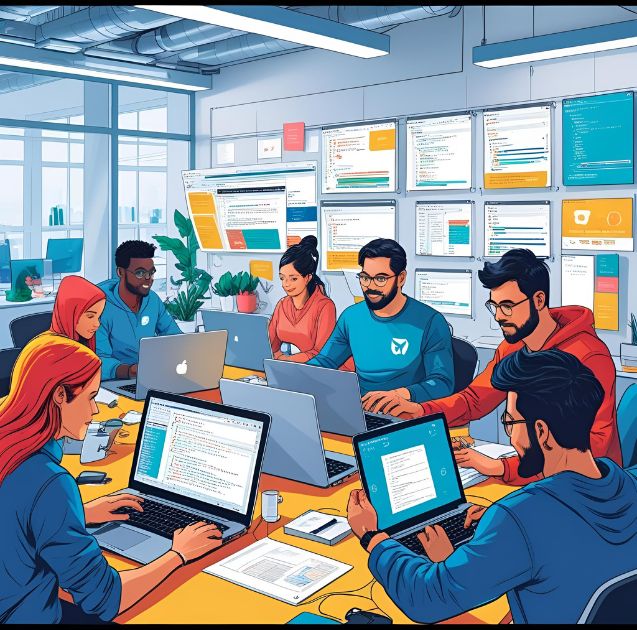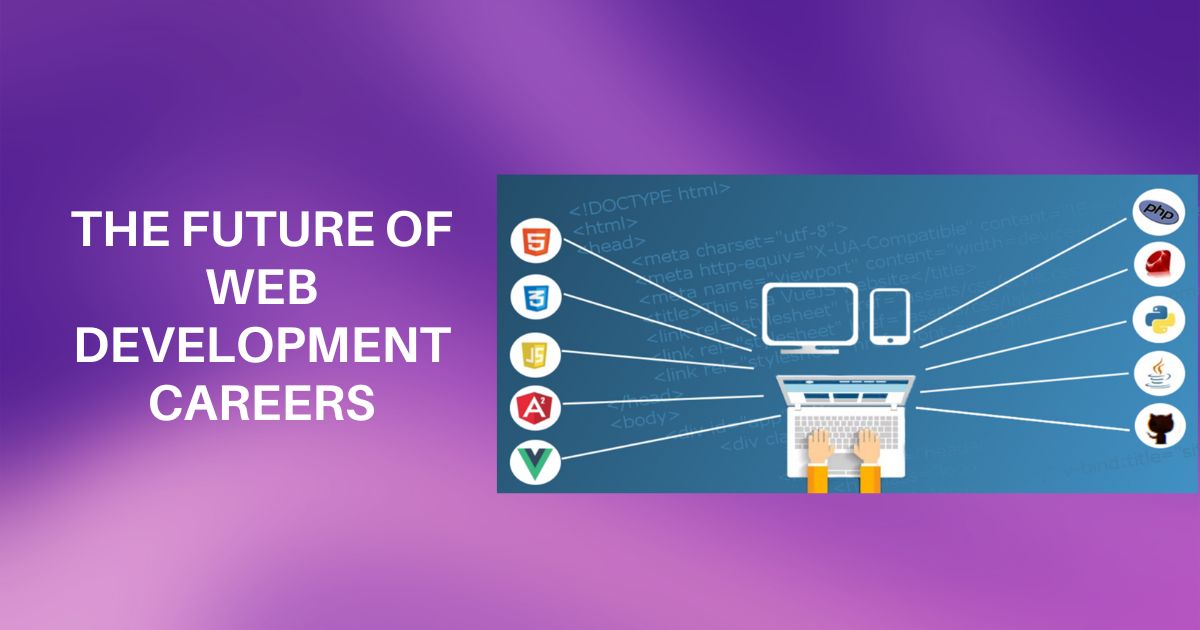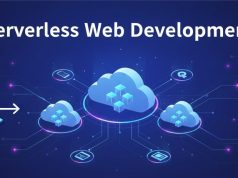Web development has evolved from simple HTML pages to complex applications powering our digital world. As we look toward 2030, the landscape continues to shift dramatically. New technologies emerge daily, user expectations soar, and the demand for skilled developers remains unprecedented.
This comprehensive guide examines the trajectory of web development careers, exploring emerging technologies, evolving skill requirements, and market opportunities that will define the next decade. Whether you’re a seasoned developer or considering entering the field, understanding these trends will help you navigate your career path strategically.
The Current State of Web Development

The web development industry has experienced explosive growth over the past decade. According to the U.S. Bureau of Labor Statistics, employment of web developers is projected to grow 13% from 2020 to 2030, much faster than the average for all occupations.
Today’s developers work across multiple specializations:
- Frontend Development: Creating user interfaces and experiences
- Backend Development: Building server-side logic and databases
- Full-Stack Development: Combining both frontend and backend skills
- DevOps Engineering: Managing deployment and infrastructure
- Mobile Development: Creating applications for iOS and Android
The rise of remote work has further expanded opportunities, allowing developers to collaborate with teams worldwide and access global job markets.
Emerging Technologies Shaping the Future
Artificial Intelligence and Machine Learning Integration
AI integration represents one of the most significant shifts in web development. Developers now incorporate machine learning models directly into web applications, creating personalized user experiences and intelligent automation.
Key developments include:
- AI-powered chatbots becoming standard on websites
- Predictive analytics driving content personalization
- Automated testing and debugging streamlining development workflows
- Code generation tools accelerating development processes
Progressive Web Applications (PWAs)
PWAs bridge the gap between web and mobile applications, offering native app-like experiences through web browsers. These applications work offline, send push notifications, and install on devices without app stores.
Benefits driving PWA adoption:
- Reduced development costs compared to native apps
- Improved user engagement and retention
- Better performance on slower networks
- Simplified maintenance and updates
WebAssembly and Performance Optimization
WebAssembly (WASM) enables high-performance applications to run in web browsers, opening new possibilities for complex software traditionally limited to desktop environments.
Applications include:
- Gaming platforms running sophisticated games in browsers
- Image and video editing tools matching desktop software capabilities
- Scientific computing applications processing large datasets
- CAD software operating entirely within web browsers
Edge Computing and Serverless Architecture
Edge computing brings processing closer to users, reducing latency and improving performance. Serverless architecture allows developers to focus on code without managing infrastructure.
These technologies offer:
- Faster response times for global applications
- Reduced infrastructure costs through pay-per-use models
- Automatic scaling based on demand
- Simplified deployment processes
Evolving Skill Requirements
Technical Skills in High Demand
The future favors developers with diverse technical competencies:
Core Programming Languages
- JavaScript remains essential, with TypeScript gaining prominence
- Python continues growing for backend development and AI integration
- Rust and Go emerge for performance-critical applications
- WebAssembly languages like C++F and Rust become more relevant
Frameworks and Libraries
- React, Vue.js, and Angular maintain strong positions
- Next.js and Nuxt.js gain popularity for full-stack development
- Svelte and SolidJS offer alternative approaches to reactivity
- Tailwind CSS transforms styling workflows
Cloud and DevOps Skills
- AWS, Azure, and Google Cloud Platform knowledge becomes crucial
- Container technologies like Docker and Kubernetes
- CI/CD pipeline management
- Infrastructure as Code (IaC) tools
Soft Skills Becoming Critical
Technical expertise alone won’t guarantee success. Employers increasingly value:
Communication Skills
- Explaining complex technical concepts to non-technical stakeholders
- Collaborating effectively with cross-functional teams
- Writing clear documentation and code comments
- Participating in code reviews constructively
Problem-Solving Abilities
- Breaking down complex problems into manageable components
- Debugging issues efficiently across multiple systems
- Adapting to new technologies and frameworks quickly
- Thinking critically about user experience and business requirements
Project Management
- Understanding agile methodologies
- Estimating development timelines accurately
- Managing technical debt and refactoring priorities
- Balancing feature development with maintenance tasks
Market Opportunities and Career Paths
Specialized Roles Emerging
The web development field continues fragmenting into specialized roles:
Developer Experience (DX) Engineers
Focus on improving tools and workflows for development teams. These professionals create internal tools, optimize build processes, and enhance developer productivity.
Web Performance Specialists
Dedicated to optimizing website speed and user experience. They analyze performance metrics, implement caching strategies, and ensure applications run efficiently across devices.
Accessibility Engineers
Ensure web applications work for users with disabilities. This role combines technical skills with an understanding of assistive technologies and compliance requirements.
Security-First Developers
Specialize in building secure applications from the ground up. They implement authentication systems, prevent common vulnerabilities, and maintain security best practices.
Industry Sectors with Growing Demand
Healthcare Technology
Digital health platforms require developers skilled in compliance, security, and user experience design for sensitive medical data.
Financial Technology (FinTech)
Payment processing, cryptocurrency platforms, and digital banking create opportunities for developers comfortable with high-security requirements.
E-commerce and Retail
Online shopping continues expanding, requiring developers skilled in performance optimization, mobile-first design, and integration with various payment and shipping systems.
Education Technology (EdTech)
Remote learning platforms and educational tools need developers who understand user experience design for diverse learning styles and accessibility requirements.
Challenges and Considerations
Keeping Up with Rapid Change
The pace of technological change creates ongoing challenges:
Framework Fatigue
New frameworks and libraries emerge constantly, making it difficult to choose stable, long-term technologies for projects.
Skill Obsolescence
Technologies that seemed cutting-edge five years ago may become outdated, requiring continuous learning and adaptation.
Decision Paralysis
The abundance of choices can overwhelm developers and teams trying to select the right tools for their projects.
Balancing Depth and Breadth
Developers must decide between:
- Specializing deeply in specific technologies or domains
- Maintaining broad knowledge across multiple areas
- Developing T-shaped skills with deep expertise in one area and broad knowledge in others
Remote Work Implications
While remote work offers flexibility, it also presents challenges:
- Communication barriers with distributed teams
- Collaboration difficulties on complex projects
- Career advancement concerns in remote-first organizations
- Work-life balance challenges when working from home
Preparing for the Future
Continuous Learning Strategies
Stay Current with Industry Trends
- Follow reputable tech blogs and newsletters
- Attend conferences and webinars
- Participate in developer communities
- Experiment with new technologies through side projects
Build a Learning Portfolio
- Document your learning journey through blog posts
- Contribute to open-source projects
- Create demo applications showcasing new skills
- Participate in coding challenges and hackathons
Develop Teaching Skills
- Mentor junior developers
- Create educational content
- Speak at meetups and conferences
- Write technical documentation
Building a Sustainable Career
Diversify Your Skill Set
- Combine technical skills with domain knowledge
- Develop both frontend and backend capabilities
- Understand business requirements and user needs
- Learn about security, performance, and accessibility
Build Strong Professional Networks
- Engage with local developer communities
- Maintain relationships with former colleagues
- Contribute to professional organizations
- Share knowledge through content creation
Plan for Career Progression
- Set clear learning goals and timelines
- Seek feedback from peers and mentors
- Take on challenging projects that stretch your abilities
- Consider leadership and management opportunities
Thriving in Tomorrow’s Web Development Landscape

The future of web development careers looks bright for those willing to adapt and grow. While technologies will continue evolving rapidly, the fundamental need for skilled developers who can solve problems, communicate effectively, and create exceptional user experiences will remain constant.
Success in this field requires balancing technical expertise with soft skills, staying current with emerging technologies while maintaining depth in core competencies, and building sustainable learning habits that will serve you throughout your career.
The developers who thrive will be those who view change as an opportunity rather than an obstacle, who build bridges between technical possibilities and human needs, and who never stop learning and growing. Whether you’re just starting your journey or looking to advance your existing career, the web development field offers unprecedented opportunities for those ready to embrace its dynamic future.







